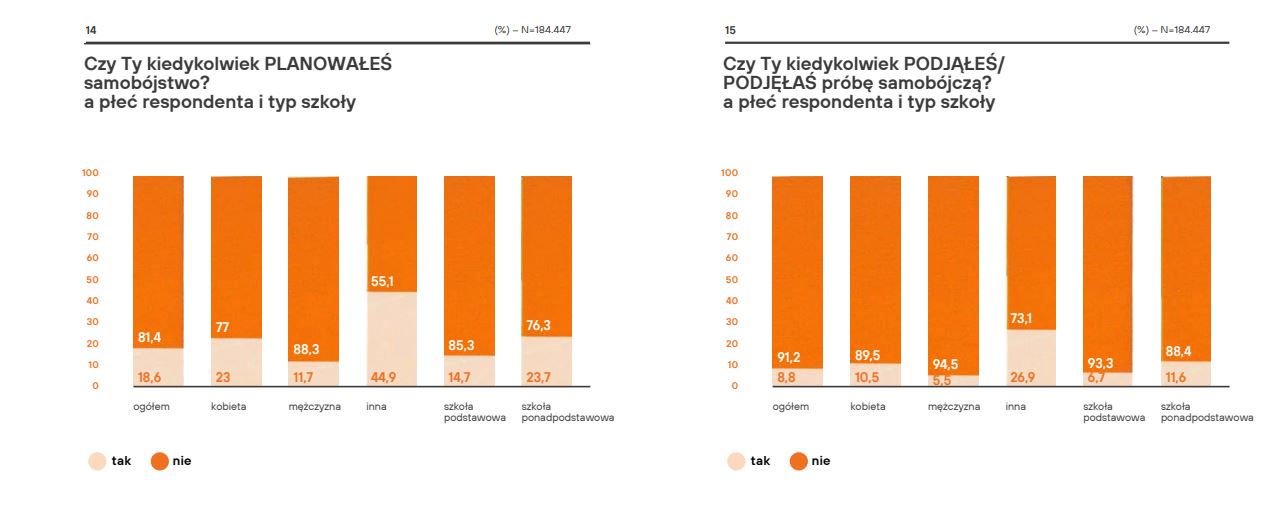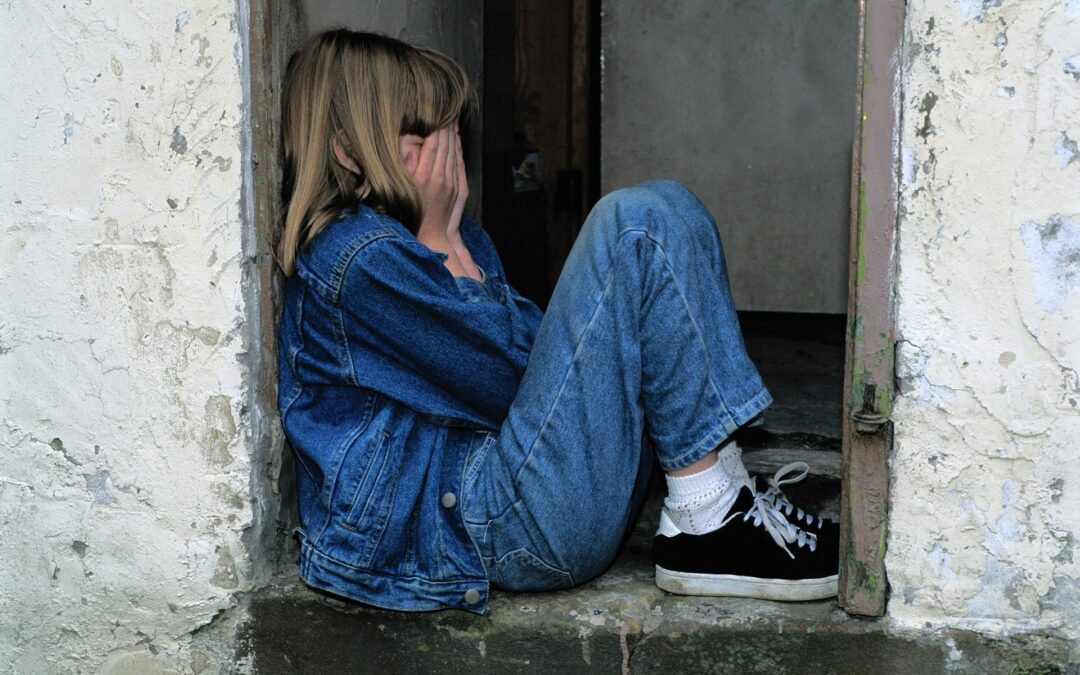A survey of almost 185,000 school pupils in Poland has found that almost a third say they have no will to live and almost one in ten have attempted suicide. Though the study was not conducted using random sampling, it has added to evidence of growing mental health problems among young Poles.
The research was conducted through an anonymous online questionnaire in 1,923 Polish schools that voluntarily signed up for the project. It was usually carried out during IT classes or in special lessons intended to address topics important to children’s social development and wellbeing.
Children could decide whether they wanted to participate and also required the consent of parents. Those who started to complete the survey but did not complete it (around 20% of respondents) were not included in the results.
The organisation behind the study – the Unaweza Foundation, whose founder and head is Martyna Wojciechowska, a well-known TV presenter – acknowledges that the non-random sampling method makes it difficult to establish a representative research group.
Among the 184,447 respondents, who were aged 9 upwards, 37.5% reported feeling lonely, 32.5% said they do accept who they are or how they look, and 28% claimed they have no will to live. The report’s authors believe that the results show one in three students having suspected depression.
Over 39% of respondents said they had thought about attempting suicide. Almost one in five (18.6%) had planned suicide and almost one in 10 (8.8%) had attempted it. Among primary school pupils, 6.7% said they had attempted suicide.
The study found that the main factor influencing the likelihood of depression and suicidal thoughts was the lack of a sense of agency, competence or self-confidence.

“We are facing a deep crisis, and its next stages are yet to come,” said Wojciechowska, commenting on the report. “As a mother, I felt fear for the future of my daughter and the younger generation.”
The last two years have seen record numbers of suicide attempts among minors in Poland. Last year, the police recorded 2,093 such attempts, which was 40% more than the figure from 2021, which itself represented a 77% increase on the previous year.
The education minister in Poland’s national-conservative government blamed this on “brainwashing” of children by “LGBT, neo-liberal and neo-Maxist ideologies”.
Last year, the health minister noted that during the pandemic there had been a “huge increase” in mental health problems among children. In 2020, the children’s rights commissioner also warned of the growing problem.
A record number of suicide attempts by children and adolescents have been recorded in Poland this year
Police data show over 1,500 by the end of September, already more than in the whole of 2021.
For more, see our report: https://t.co/cBthaVVBhM pic.twitter.com/VxDU93a1LM
— Notes from Poland 🇵🇱 (@notesfrompoland) October 27, 2022
Among respondents in the Unaweza Foundation study, just over half (56.5%) of were pupils at primary schools, which are attended by children up to 14 years of age. The remainder were secondary-level students at high schools (24.4%), technical schools (16.8%) and vocational schools (2.3%).
The most common age of respondents was 13 (14.7%) and 14 (14.3%). Most of the students surveyed came from towns of between 20,000 and 100,000 residents (35.4%) and up to 20,000 inhabitants (32.9%), while 10.5% came from large cities with more than 500,000 residents.
The report offers 53 recommendations on how to improve the mental health of young people, including introducing a procedure to screen for depression in educational establishments and increasing activities for preventing crisis behaviour.
“Brainwashing” by sex educators is responsible for suicides among children, says the education minister
A child who doesn't identify with their assigned sex should not be encouraged to believe that this "anthropological error is actually correct", he adds https://t.co/Kax621iMYY
— Notes from Poland 🇵🇱 (@notesfrompoland) November 16, 2022
Main image credit: Hans Kretzmann / Pixbay

Alicja Ptak is deputy editor-in-chief of Notes from Poland and a multimedia journalist. She has written for Clean Energy Wire and The Times, and she hosts her own podcast, The Warsaw Wire, on Poland’s economy and energy sector. She previously worked for Reuters.




















